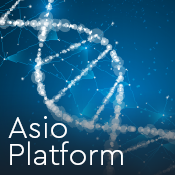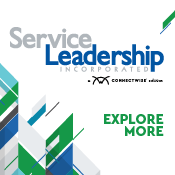Colleague Spotlight: Celebrating Asian American and Pacific Islander Heritage Month
Asian American and Pacific Islander (AAPI) Heritage Month is recognized each May in the United States to honor and celebrate the achievements and contributions of the diverse community of Asian American and Pacific Islanders. What once started as a week-long event in 1978 was expanded to a month-long event in 1992.
There are 16.6 million Asian Americans and Pacific Islanders living in the US, which is 5.4% of the US population. There are over 30 different countries and ethnic groups that make up this community, with over 100 different languages, according to the US National Archives.
AAPI Heritage Month allows us all to acknowledge and understand the significant social and economic contributions made by those who identify within this community as well as address the challenges that we face, such as discrimination, racism, and hate crimes. Through education and awareness, everyone can be a supportive ally to the AAPI community. I encourage you to learn, celebrate, and take part in the rich culture, food, languages, and traditions that AAPI Heritage Month provides to us all.
In honor of the Asian American and Pacific Islander community in the United States, I spoke to three colleagues about Asian American and Pacific Islander Heritage Month.
Nancy Bosek
Senior Manager, Training
What does Asian American and Pacific Islander Heritage Month mean to you?
As a second-generation immigrant, I value the importance of embracing my culture and heritage throughout the year, not just this month! Growing up in a multi-generational household, I was immersed in Chinese and Vietnamese as my primary languages, and English was not even allowed to be spoken at home. Now that I have children, and with my immediate family not close by, I strive to ensure that my children understand my background and embrace our cultural traditions when possible.
How do you identify within the AAPI community and how has your heritage shaped the person you are today?
I come from a Southeast Asian family, hailing from Vietnam. My father has 13 siblings, while my mother has three. Growing up, the importance of family and a sense of belonging was deeply instilled in me and has greatly influenced my leadership style. I place great emphasis on fostering strong relationships with those around me.
What are some meaningful family or cultural traditions that are important to you?
Lunar New Year is my favorite holiday! The preparations leading up to it, such as cleaning the house, preparing a grand reunion dinner, and exchanging lucky money, are what make it so special. As my family is quite superstitious, we also place great importance on the Chinese horoscope for the year. My sons eagerly anticipate this holiday, relishing the chance to savor the symbolic cuisine and appreciating the effort that goes into crafting each dish.
Who are the role models or mentors that have influenced or helped to guide you?
It is tradition for the father or oldest son to assume the role of the primary provider in the family. However, in my family, my mother—the youngest and only female among four siblings—has become the matriarch and has had a significant impact on my life. She’s not only sponsored multiple family members to come to the States, but she’s also become my grandmother’s primary caretaker for the last 35 years. Leaving Vietnam at the age of 16, in the aftermath of the Vietnam War, she was unable to reunite with her family until 15 years later. My mother's resilience and strength have been a source of inspiration to me.
What’s something you’d like to share with others within ConnectWise and outside of it to help educate, support, or promote the AAPI community?
It would be great to see ConnectWise showcase the diverse cultures and colleagues in Pune, Bangalore, India, and the Philippines, given the company's significant presence in these regions.
Drew Avery
Manager, Support Services
What does Asian American and Pacific Islander Heritage Month mean to you?
Asian American and Pacific Islander Heritage Month is a time to celebrate and acknowledge our cultures, histories, and achievements. It is a time to honor the challenges, struggles, and sacrifices of our ancestors who came to the United States.
How do you identify within the AAPI community and how has your heritage shaped the person you are today?
Overall, this month holds great significance for many people of Asian heritage as a time to celebrate cultural identities, honor ancestors, and promote greater understanding and social justice.
What are some meaningful family or cultural traditions that are important to you?
As an Asian, family and cultural traditions are very important to me. Here are some of the traditions. I place great importance on family values, such as respect for elders. Food and hospitality are central to family gatherings and celebrations. Festivals—many Asian cultures have unique and colorful festivals and celebrations throughout the year. Chinese New Year is a perfect example that comes with plenty of food!
Who are the role models or mentors that have influenced or helped to guide you?
Who better than my parents? Coming over to The States during the Vietnam War with four children for freedom from communists. Hearing many stories about how my father served in the Republic of Vietnam Navy as a South Vietnamese military Navy officer has humbled me as a person.
What’s something you’d like to share with others within ConnectWise and outside of it to help educate, support, or promote about the AAPI community?
Learn more about the ‘Stop AAPI Hate’ movement and get involved.
Katherine Cox
Internal Communications Manager
What does Asian American and Pacific Islander Heritage Month mean to you?
There is power in having a presence and sharing perspectives. This month is an opportunity to learn about, recognize, and honor the prismatic variety and brilliance of the AAPI community. It’s also the time to bring attention to key issues and setbacks that are still prevalent.
How do you identify within the AAPI community and how has your heritage shaped the person you are today?
My mother is Vietnamese and my father is American. I was born after they met in the US. As the daughter of a naturalized immigrant, I experienced my mother’s absolute love of her adopted country, as well as her struggle to feel accepted. I witnessed my mother persevere through bias and saw my father speak up against discriminatory behavior. Together, these actions shaped my personal view of responsibility, humanity, and what it means to be an American—inclusivity, kindness, and justice for all.
What are some meaningful family or cultural traditions that are important to you?
We love to add a Vietnamese spin to American holiday meals. My favorite is chả giò (fried spring rolls stuffed with vermicelli rice noodles, mushrooms, and meat) as our traditional Christmas dinner. There’s something special about hand-rolling them together and picking fresh lettuce and herbs from my mom’s garden to accompany them. Celebrating Tết (Lunar New Year) at a local Buddhist temple is a relatively new tradition for us. Even though I don’t speak Vietnamese, I find the chanting and prayers to be relaxing and meditative.
Who are the role models or mentors that have influenced or helped to guide you?
My local community of self-healing women. I am so thankful for the unconditional love and support that I receive from this group of amazing women who share their experiences each week in a safe space. Together, we form a powerful and supportive community that encourages personal growth and the strength to heal from within.
What’s something you’d like to share with others within ConnectWise and outside of it to help educate, support, or promote about the AAPI community?
Practice feelings of self-worth and learn to be comfortable with your authentic self. The beauty of our AAPI community—and all communities in fact—is that we’re all different. We are vibrant, diverse, and come from all backgrounds and experiences. It’s important to understand, appreciate, and celebrate each person’s unique contributions, and it starts with our own acceptance of ourselves—quirks, imperfections, and all.





